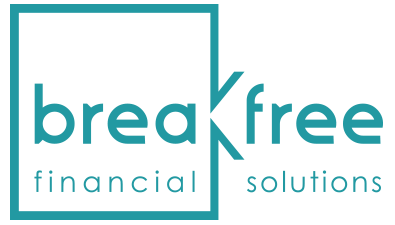You have found your dream home. Now it’s time to get a mortgage. What are the main questions to ask my mortgage broker?
Over half of first-time buyers admit that they were never clear on the various lending options available to them. Nor what kind of information he or she is supposed to provide at various stages of their loan application.
They also don’t know what questions they should ask their mortgage broker. By asking questions you will better understand the various lending options and it could make all the difference in your confidence as a new homeowner. This is all part of the smart things to do before getting a mortgage. Being well prepared will increase the loan process going through much more smoothly too.
MAIN QUESTIONS TO ASK
Basics
As you start look at getting a home loan, it’s important to know the basic questions to ask. The common terminology that you will encounter for a basic home loan – Owner occupied (OO), principal & interest (P&I), interest only (IO) and loan value ratio (LVR).
Principal – What is the dollar amount that’s being approved for this loan? Without taking into account any of the other fees or expenses, that’s called your principal.
Interest– The lender needs to make money off the loan, so this is the amount you’ll pay back in addition to the principal loan.
Loan Value Ratio– The loan amount divided by the valuation of the property. Lenders prefer this ratio stays under 80%. If the lender is willing to lend beyond 80%, they are likely to apply a one-off Loan Mortgage Insurance (LMI) premium. This is very expensive and is not refundable.
QUESTIONS BUYERS FORGET TO ASK
Once you’ve covered the basics, there could still be a lot of ground to cover. Make sure you have all of your questions thoroughly answered before moving forward. Here are some questions a lot of people don’t know to ask:
1. What documents do I need for a loan?
There will be paperwork that you will need to provide your mortgage broker after the initial meeting. But prior to that meeting it would be good to be prepared with the documents they are going to need. Here is an example of typical documents, but it is not an exhaustive list:
a) Income verification
PAYG INCOME
Proof of income is required for all lending applications and must match the income stated on the application.
Payslip
– Minimum of 3 months continuous salary reflected in YTD figure.
– If no YTD figure, minimum of 3 months of payslips must be provided.
– Must be within 60 days of the application date.
– Must not be handwritten.
Bank statements
– Salary credits in bank statements provides evidence of minimum of 3 months continuous salary.
Tax return, ATO notice of assessment
– Tax return must be Tax Agent prepared.
SELF-EMPLOYED INCOME
Sole trader/contractor
– Proof of income can be verified by providing a tax return and the ATO notice of assessment dated within 18 months.
Partnership
– Proof of income can be verified by providing a tax return dated within 18 months.
Company
– Proof of income can be verified by providing an accountant-prepared profit and loss statement and balance sheet dated within 18 months.
New venture/start-up business in operation for less than 12 months
– 12-month accountant-prepared projections.
– Interim profit and loss statement/trial balance for the period the business has been established. (Where available. Does not have to be accountant prepared.)
– Contractors that remain in the same industry and have been in business for more than 12 months can have their income confirmed by their most recent tax return (dated within 18 months) accompanied by ATO notice of assessment.
b) Contract of Sale – signed and dated
A copy of the contract of sale is provides evidence of purchase, sale price, deposit paid and property particulars such as certificate of title details.
c) Copy of any existing loan agreements and evidence of regular repayments
This might be your car loan or details of any other liabilities. Some banks/lenders require copies of your last credit card statement.
d) Copy of your Permanent Residence visa grant (if applicable)
e) Statement of Financial Position
This is (a) listing of your assets and liabilities and (b) income and expenses.
f) Identification documents
Identification documents that must be certified, such as passport, drivers licence, birth certificate
2. What government grants do I qualify for?
There are first time homeowner grants. Each State has different caps/limits. Some banks have special introductory rates for first home owners, but you should, what happens after the honeymoon period is over to the interest rate? Are you better placed looking for a package of products from a lender (which has a credit card and an offset account), because in some instances the home loan rate is better than the introductory rate.
3. What are the lender fees?
Sure, the lender gets paid through the interest on the loan. Many lenders, however, also have fees for their initial services. Calculate this out-of-pocket expense before you agree to any other terms.
4. What’s the minimum deposit to qualify for the loan?
The standard deposit is 20% of the purchase price, and the LVR is 80%. However, with some lenders may allow a higher LVR, but LMI will apply.
5. What are interest rates expected to do?
What do the economists think will happen to interest rates over the next say 5 years? If they expect them to go up, should you consider locking all, or a portion of your loan on a fixed interest rate?
6. Does my approval have an expiration date?
There usually is time limit on your loan approval, so it’s good to be mindful of this.
7. Are there any prepayment penalties?
Doesn’t the term prepayment penalty sound terrifying? That’s because it is! Prepayment penalties are a way for the lender to charge you for paying off your mortgage early. You need to be cognizant of this. They normally apply to fixed interest rate loans.
8.How long will the loan process take?
You have 100 different balls in the air during a property purchase, so perhaps the most important thing you need to know is how long it will take to process the application for formal credit approval.
There is a misconception within the market about pre-approved loans. Ironically, a pre-approval isn’t necessarily a guarantee of getting approved. There are a number of banks and lenders who tend to be unreliable because the pre-approval has not been to its credit assessment team. It has only been to its loan process area. This area basically checks to make sure all the necessary documents have been provided to later on-forward to the credit assessment department to make a formal credit approval.
9. How do you get remunerated as my mortgage broker?
Does this influence the interest rate on my loan? The answer is the mortgage broker is paid an upfront commission and a trail commission. This does not influence your interest rate from the bank. You need to understand your position if your refinance or repay your mortgage within the first 12 months, because the upfront commission the mortgage broker is subject to clawback from the bank and they may pass this expense onto you…
10. Do credit cards impact the amount I can borrow?
The simple answer is YES. Banks apply a minimum of 3% of the limit as your monthly liability and it also impacts the total amount the banks are will to lend. If you don’t need the credit card limit as high as it currently is, you should consider reducing or cancelling the limit, as it could impact your borrowing power.
11. How do banks calculate my ability to service a loan over a 30-year term?
Banks are required by legislation to use a buffer/sensitised interest rate to assess your servicing capacity. If the current interest rate for your loan is 3.8%, the banks will apply a buffer/sensitised rate of ~7.25%. The rationale for this is, interest rates over the 30-year term will be subject to market fluctuations and this is proxy to stress test when interest rates go up.
COVER YOUR ASSETS
The mortgage process can be the most overwhelming part of buying a home! These questions above will help you build your understanding and gain confidence in assessing the right mortgage for you.

